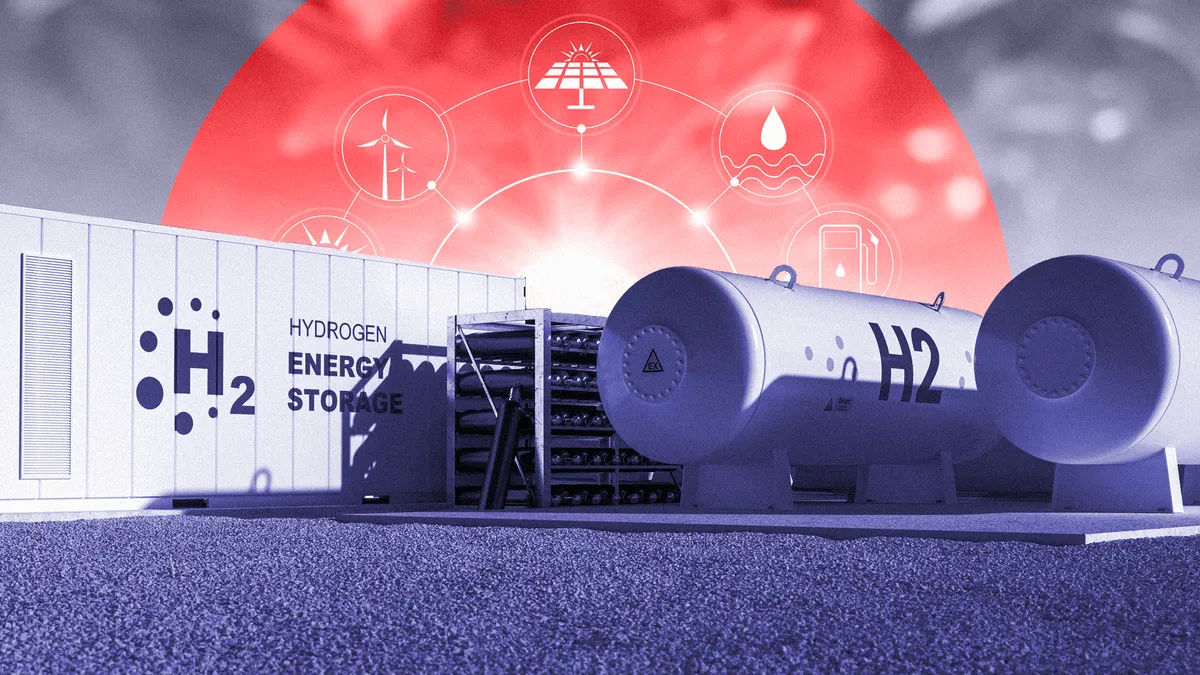Dive Brief:
-
The U.S. Department of Energy on Thursday released a new strategic framework directing federal hydrogen research, designed to "advance the affordable production, transport, storage, and use of hydrogen across different sectors of the economy."
-
Future research will target key barriers to the availability of hydrogen, including cost, efficiency and transportation, according to the framework, which establishes both coal gasification and electrolysis as near-term research priorities.
-
The fact that the DOE did not wait for the change of administration to release the report raises questions about its staying power, but also suggests hydrogen enjoys broad bipartisan support at the federal level, according to Mona Dajani, partner at law firm Pillsbury and co-leader of the firm's Energy and Infrastructure Projects Team.
Dive Insight:
The U.S. has lagged behind its peers in Europe and Asia with respect to hydrogen research and deployment, said Dajani, who is spearheading her firm's hydrogen practice in New York and London.
DOE's new report "is definitely something that is welcomed," Dajani said. "It's a step in the right direction, and I think we will see more of these initiatives" when Biden assumes the presidency.
Dajani said she was surprised by the timing of the report, which was released despite the expected transition in presidential authority. Biden may choose to make some changes, but the fact that the Trump administration endorsed a federal strategy on hydrogen research, suggests hydrogen technology enjoys broad support, she said.
"To me, it's a very strong indicator of bipartisan support," Dajani said. "It was almost like a rubber stamp."
She added the adoption of a U.S. hydrogen strategy is also long overdue.
"This has already taken off in other parts of the world. We have dedicated clients in the space," Dajani said. "It's about time it came here."
The strategy outlined by DOE's report aims to decrease costs and increase the availability of hydrogen fuel for use in a variety of industries, including energy production, where Deputy Secretary of Energy Mark Menezes said hydrogen research would "contribute to this important DOE-wide effort to support our all-of-the-above energy strategy." The plan establishes both coal gasification and electrolysis for green hydrogen production as near-term research strategies, but also outlines plans for scientific investigation of technologies for transporting and delivering hydrogen, hydrogen storage, and industrial applications.
This aligns with key challenges described by Mitsubishi Power President and CEO Paul Browning during a separate webinar, held the same day as the DOE announcement. Demand for hydrogen as a means of energy storage has emerged and grown rapidly over the past year, he said, with orders from Mitsubishi Power's energy division growing from nothing in 2019 to more than $600 million so far in 2020.
"We do not see hydrogen right now as a fuel," Browning said during the webinar. "We see it as a storage technology. And 15 years ago, we didn't have … heavy renewables penetration in parts of the country, so we didn't have a need for storage 15 years ago. Trying to compete against natural gas as a fuel, the economics are extremely challenging."
For hydrogen to become a true fuel alternative would require reductions in cost, Browning said, but he also said he had reason to believe those cost reductions will come. Once that happens, he said, there will be a need for pipeline, storage and transportation technologies to facilitate Mitsubishi's vision of a hydrogen-powered energy transition.














